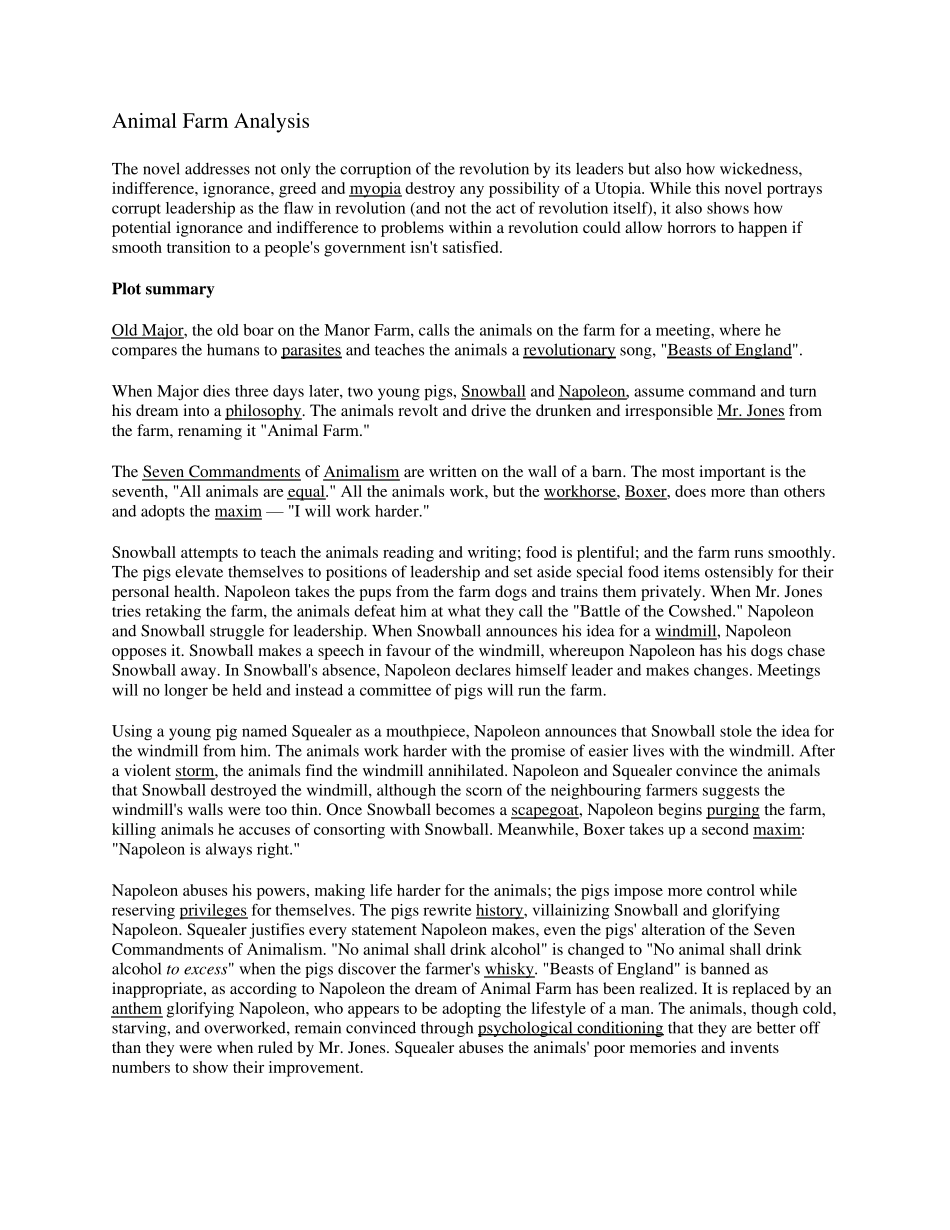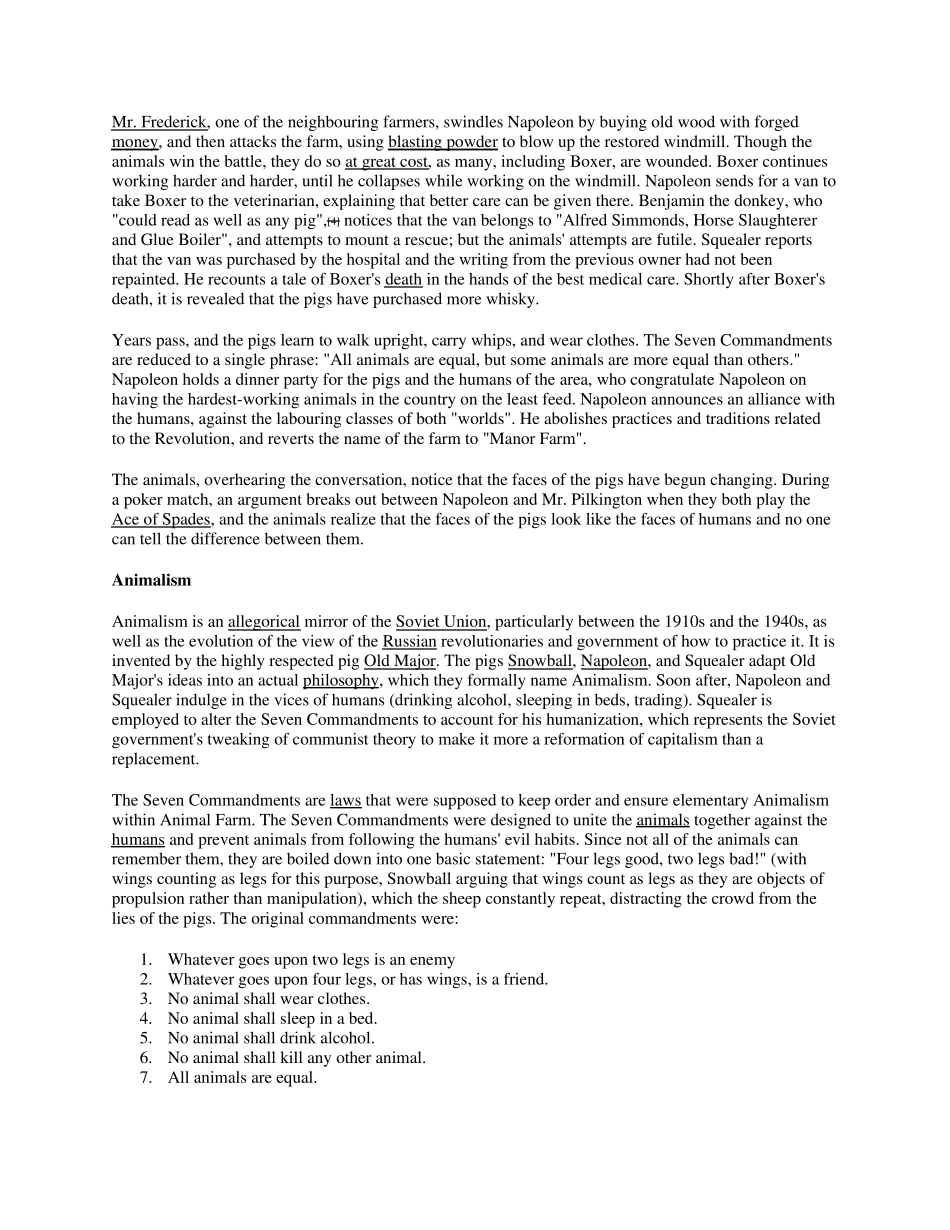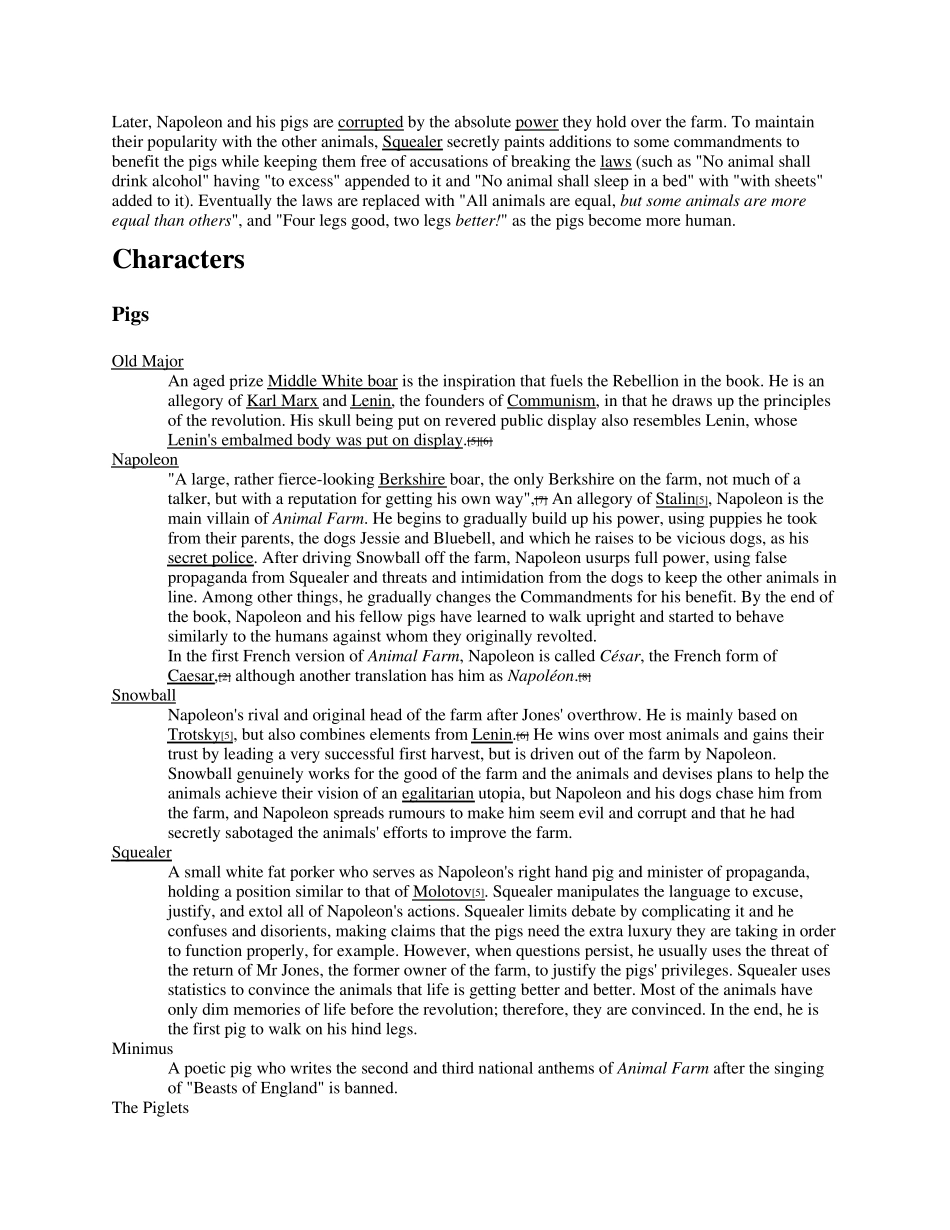Animal Farm Analysis The novel addresses not only the corruption of the revolution by its leaders but also how wickedness, indifference, ignorance, greed and myopia destroy any possibility of a Utopia. While this novel portrays corrupt leadership as the flaw in revolution (and not the act of revolution itself), it also shows how potential ignorance and indifference to problems within a revolution could allow horrors to happen if smooth transition to a people's government isn't satisfied. Plot summary Old Major, the old boar on the Manor Farm, calls the animals on the farm for a meeting, where he compares the humans to parasites and teaches the animals a revolutionary song, "Beasts of England". When Major dies three days later, two young pigs, Snowball and Napoleon, assume command and turn his dream into a philosophy. The animals revolt and drive the drunken and irresponsible Mr. Jones from the farm, renaming it "Animal Farm." The Seven Commandments of Animalism are written on the wall of a barn. The most important is the seventh, "All animals are equal." All the animals work, but the workhorse, Boxer, does more than others and adopts the maxim — "I will work harder." Snowball attempts to teach the animals reading and writing; food is plentiful; and the farm runs smoothly. The pigs elevate themselves to positions of leadership and set aside special food items ostensibly for their personal health. Napoleon takes the pups from the farm dogs and trains them privately. When Mr. Jones tries retaking the farm, the animals defeat him at what they call the "Battle of the Cowshed." Napoleon and Snowball struggle for leadership. When Snowball announces his idea for a windmill, Napoleon opposes it....


